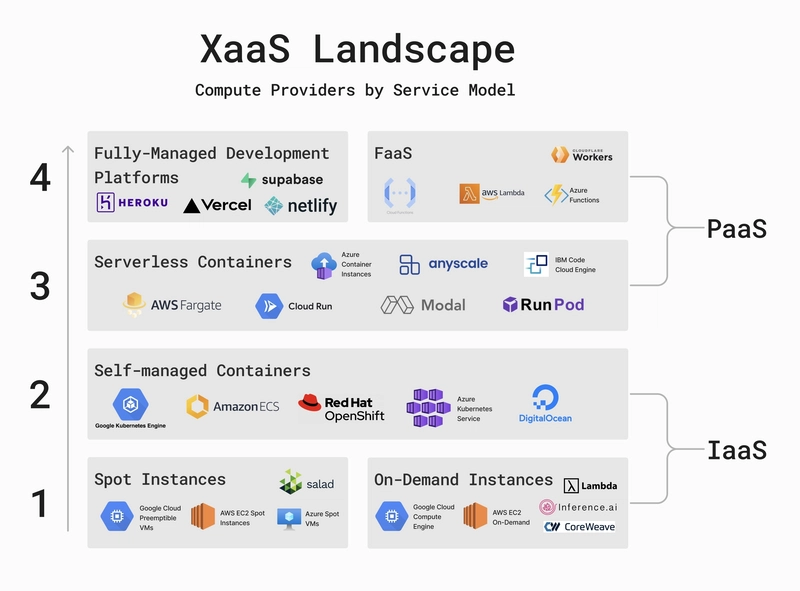MAGA Influencers Should Have Some Self-Respect
The new White House influencer briefing is a parade of softballs and sycophancy.

Here’s a question. What if you took the least appealing aspects of traditional broadcast journalism—the self-absorption, the ponderous delivery, the grandstanding—and sucked out any sense of conflict and challenge?
Now we have an answer. For three days this week, White House Press Secretary Karoline Leavitt has invited MAGA-friendly influencers to ask her questions during a dedicated press briefing. The results should be deeply embarrassing for everyone involved. We all enjoy getting together with like-minded people to kvetch about petty grievances in our professional lives—that’s what keeps bars open—but most of us would have the sense not to do so in the White House, in front of cameras. The first rule of the new-media briefing is that your question should include either personal thanks to her for inviting you, or a pro forma denunciation of the legacy media. The second rule of the new-media briefing is that your question should be, in the five words that conference organizers most dread, “more of a statement, really.”
Yesterday, Jack Posobiec, perhaps best-known for promoting the Pizzagate conspiracy theory, asked a minute-long question about how violent the far left was, and received a two-minute-long answer from Leavitt about how violent the far left was. Viewers also heard from Dom Lucre (who describes himself to his 1.5 million X followers as a “breaker of narratives”) asking if the White House would investigate “Barack Hussein Obama and Hillary Rodham Clinton” for election-integrity offenses.
“It’s refreshing to actually hear a question on election integrity, because the legacy media would never ask such a question,” Leavitt replied, ignoring the fact that the media asked quite a lot of questions about her boss’s well-documented efforts to pressure officials in Georgia to declare him the winner there in 2020. “They’re so out of touch with where the American people are on this issue.”
The briefing lasted 25 minutes, although the barrage of safe questions and safe answers made it feel much longer. The obvious knock is that this is not journalism but entertainment. The trouble is that it’s not even particularly entertaining. Donald Trump, who understands that jeopardy and drama equal ratings, would never be involved in something so dull.
The new-media briefing is part of the Trump administration’s attempt to formalize the network of friendly commentators and influencers who have prospered on X, YouTube, Rumble, podcasts, and ultra-conservative television channels. The plan appears to be to secure the loyalty of these attention-hungry narcissists by setting them against one another, in a kind of sycophancy Hunger Games, as they compete for access through ever greater acts of devotion and flattery. Remember when Fox News was the biggest Trump cheerleader in town? Those days are gone. One of the “questions” this week was the suggestion that the White House should sue Fox for putting out an opinion poll that showed the Dear Leader in a less than flattering light. The guy who asked it was the independent influencer Eric Bolling, who left Fox in 2017 over workplace-harassment allegations (which he denied).
[Read: Why MAGA likes Andrew Tate]
The dedicated briefing is an extension of the White House’s existing efforts to soften up the press pool by adding more friendly faces. Starting in January, the Trump White House gave new-media outlets a spot at the main briefing, where they are routinely called upon for the first question. On April 22, that spot went to the podcaster Tim Pool. There are three things you need to know about Pool: The first is that he never, ever takes off his beanie. The second is that he started out as a left-wing activist-slash-journalist, covering Occupy Wall Street. The third is that he was among a group of conservative commentators who, the Justice Department asserted last year, unwittingly received large sums from Russian agents eager to stoke American culture-war controversies. (Pool put out a statement at the time saying that he and his colleagues were “victims.” More recently, he has contested the Justice Department’s allegations.)
Pool’s question to Leavitt was just culture-war content in a different form. “Many of the news organizations that are represented in this room have marched in lockstep on false narratives such as the ‘very fine people’ hoax, the Covington smear, and now what’s being called the ‘Maryland man’ hoax, where an MS-13 gang member—adjudicated by two different judges, I believe—is just simply being referred to as a ‘Maryland man’ over and over again,” Pool said, wearing what looked like a hoodie with lapels.
He was talking about Trump’s explanation of the white-supremacist violence in Charlottesville, Virginia, in 2017, and an incident two years later where students from Covington Catholic High School in Kentucky were wrongly accused of racism based on an out-of-context viral video. The most recent incident is the Trump administration’s decision to deport Kilmar Abrego Garcia, a man living in Maryland, who it claims is a gang member.
As well as relitigating press coverage of these incidents, Pool wanted Leavitt to issue a wider condemnation of the traditional media. “In an effort from the White House to expand access to new companies, you’ve created this new-media seat,” Pool went on, adding that “you’ve had numerous outlets disparage the companies that you’ve had sit here, as well as the reporters. I’m wondering if you could comment on that unprofessional behavior as well as elaborate if there’s any plans to expand access to new companies.”
[Read: The global populist right has a MAGA problem]
Well, that’s one in the eye of the traditional media, isn’t it? Too often, legacy outlets focus on fripperies such as But the Supreme Court has ordered you to do this, so why haven’t you done it? or Why is there a tariff on an uninhabited island? or Come on, that’s clearly Photoshop. Instead they ought to address the biggest issue of the day: Tim Pool’s feelings of grievance. (And I say this as someone who agrees with Pool that many traditional media outlets got Covington wrong.)
Leavitt happily accepted Pool’s premise, saying that she welcomed “diverse viewpoints” and “unbiased journalists.” Then she claimed that The Atlantic had incorrectly reported Abrego Garcia’s story. The administration would rather argue over the words used to describe Abrego Garcia, who undoubtedly is both a man and a Maryland resident, than admit that its grounds for deporting him were initially sketchy and later appeared manipulated. The MAGA-friendly influencers are happy to collude with the White House because it flatters them, portraying them as the only independent-minded bringers of truth.
As it turned out, Pool’s sucking up was just an appetizer. The first full-scale influencer briefing, on Monday, showed just how cozy things can get when normies and libs aren’t even allowed into the room. “Tens of millions of Americans are now turning to social media and independent media outlets to consume their news, and we are embracing that change, not ignoring it,” Leavitt said in a seven-minute opening speech. The first influencer to ask a question, Arynne Wexler—“just a nonlib girl in a crazylib world”—kicked things off by noting that “my Uber drivers finally speak English again, so thank you for that.”
Later on came Winston Marshall, who used to play the banjo in Mumford & Sons until he was forced out for praising a book by the right-wing author Andy Ngo. He is also the son of Paul Marshall, the owner of the British publications UnHerd and The Spectator. Instead of working for either outlet, however, Winston has an interview podcast, on which he speaks with the same people who appear on all the other interview podcasts. Recent guests include Tim Pool.
At the White House, Marshall wanted to talk about the state of free speech in Britain, a topic upon which Vice President J. D. Vance recently delivered a short homily to European leaders. “As we speak, there are people in prison for quite literally reposting memes,” Marshall told the press secretary. “We have extensive prison sentences for tweets, social-media posts, and general free-speech issues.”
[Nick Miroff: An ‘administrative error’ sends a Maryland father to a Salvadoran prison]
This is a legitimate point—in Britain we have far fewer speech protections than America, and the police here have arrested citizens for their social-media posts. But the alleged topic at hand was merely a setup for Marshall’s zinger: “Would the Trump administration consider political asylum for British citizens in such a situation?”
Leavitt laughed. “I have not heard that proposed to the president nor have I spoken to him about that idea, but I certainly can, and talk to our national-security team and see if it’s something the administration would entertain,” she replied. Let me decode that: Thank you for your absolute nonquestion, which you and I both understand was asked purely to be clipped and posted on social media. The reaction over here in Britain to Marshall’s showboating was rather less warm. “Why stop with free speech martyrs?” one friend texted me. “I think we should encourage all banjo players to seek asylum in the States.”
Former Trump press secretary turned influencer Sean Spicer then moaned about the president giving an interview to The Atlantic—subtext: why not meeee—before DC Draino, a Florida-based commentator whose real name is Rogan O’Handley, asked about further updates on the government’s files about the financier and sex offender Jeffrey Epstein. O’Handley was one of the influencers summoned to the White House in February to be given a ceremonial ring binder of evidence against Epstein—who died in jail while awaiting trial for sex-trafficking charges in 2019. (The influencers got played: The flight logs inside the binders were already public.)
Then came the America First Policy Institute ambassador Kambree Nelson, who asked Leavitt about what she should cover as a reporter. “So, what direction do you advise me to go into?” she said. “Like, the White House files that y’all send out every single day?” (This was at least a better question than the one Nelson once asked on X, about whether the moon had disappeared because she hadn’t seen it for a week. “Why is everyone silent about this?” she added.) Leavitt suggested that Nelson might usefully concern herself with the fact that the president does “so many phenomenal things every day that will never be mentioned on cable news at night.”
[Jeffrey Goldberg: Read ]The Atlantic’s interview with Donald Trump
Other observations from the first day included: “It’s so refreshing to have a press secretary after the last few years who’s both intelligent and articulate” and “Great job this morning, and as always; you’re really crushing it.” Anytime someone crept close to a real question—asking when the promised border wall would be completed, or when Trump’s pledge of eliminating federal income tax would be enacted—Leavitt simply brushed it aside. “This is something the secretary of commerce and the secretary of Treasury are both equally as excited about, as is the president,” Leavitt replied to the second inquiry. In other words, it’ll happen on about the seventh of never.
Tuesday brought more softballs. “Congratulations on 100 incredible days,” the internet personality Debra Lea began, before asking what policies Trump would pursue to keep his approval ratings “historically high” and to win the midterms. (His approval ratings are lower than Biden’s were at the 100-day mark.) The answer was “tax cuts.”
Later, Link Lauren—a man who not only has his names the wrong way around, but also appears to have styled himself after Draco Malfoy—asked Leavitt a question that even North Koreans might have found a bit much. “You’re a very high-profile young mother who seems to juggle and balance it all beautifully,” Lauren said. “What advice do you have to young parents out there who are starting their careers, having kids, building families, and trying to find that balance so desperately?”
“Well, it’s a great question,” Leavitt replied.
Now, I’ve got nothing against the new media—some of my best friends are Substackers. If you have a podcast, I will go on it to promote my forthcoming book. But what’s hilarious is how quickly these influencers, who complain so much about the hated mainstream media, have immediately copied all of their rivals’ worst habits when given even the merest taste of access and power. Then again, maybe even they know that the briefings are cringeworthy. As the media reporter Paul Farhi noted, the White House has claimed that it had 10,000 applications from new media, but the second and third briefings had empty seats. I suspect that the MAGA crowd wants to be in the main briefing, where they can lord it over the traditional reporters—not in the kiddie pool. Still, plenty of people find the chance to take a selfie in the Rose Garden irresistible.
Almost everything about the Trump presidency can be understood as a quid pro quo. In the case of the influencers, they are offered access to all the awesome scenery of the White House—the perfect backdrop for any viral video—and the heady sense of being insiders. In return, all they have to do is ask questions that would make a Soviet propagandist blush.





































































